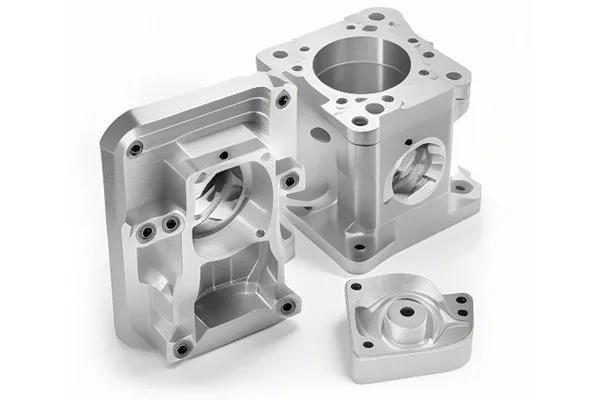: The Art of Precision
In the realm of manufacturing, precision is not just a quality; it’s a necessity. Every component, whether it’s a delicate gear in a coffee machine or a robust housing for high-performance automotive parts, relies heavily on the precision with which it is crafted. At YL Machining, we understand that the heart of any DIY project lies in the capability to create parts that not only fit but also function effectively and consistently over time. It is with great enthusiasm that we dive into the transformative world of CNC machining customization—a tool that can catapult your DIY projects from the realm of the ordinary to the extraordinary.
Joining us on this journey through bytes and bolts, you’ll uncover how CNC (Computer Numerical Control) machining can enhance the precision and stability of your DIY parts. Together, we’ll explore the methodologies, technologies, and the very philosophy that shapes our approach at YL Machining.
—
Chapter 1: Understanding CNC Machining

Before we delve deeper into customization, it’s essential to lay a foundation. What exactly is CNC machining?
CNC machining refers to the automated control of machining tools (like drills, lathes, and mills) by a computer. This process begins with a CAD (Computer-Aided Design) model, which is transformed into a set of instructions for the CNC machine through CAM (Computer-Aided Manufacturing). This intricate dance between technology and design allows for high levels of detail and precision, making it an invaluable tool in modern manufacturing.
Key Benefits of CNC Machining:

—
Chapter 2: The Essentials of Stability in DIY Parts
Stability in the context of DIY parts encompasses durability, reliability, and functionality. These attributes are crucial for any component that needs to withstand varying conditions, whether it be mechanical stress, temperature fluctuations, or general wear and tear.
Factors Contributing to Stability:
Real-World Application: How Stability Comes Into Play
For instance, consider a DIY project involving a drone. Every component must be lightweight yet strong, able to withstand the vibrations and forces encountered during flight. If a part is machined with irregularities, the drone can become unsteady, leading to potential failure. Therefore, achieving stability is a multifaceted approach that embodies everything from material to manufacturing technique.
—
Chapter 3: Customization as a Game-Changer
Customization in CNC machining allows for adapting the production process to meet the specific needs of each project. This is especially beneficial for DIY enthusiasts who often work with unique specifications or creative concepts.
Why Choose Custom CNC Machining?
—
Chapter 4: CNC Machining Customization Techniques
To effectively improve the precision and stability of DIY parts, it’s essential to understand the various techniques used in CNC machining customization. Here, we highlight several methods that can be applied:
—
Chapter 5: Case Studies from YL Machining
To further illustrate the applicability of CNC machining and customization, we’ll share some compelling case studies from YL Machining.
Case Study 1: The Robotics Enthusiast
Project: A DIY robotic arm capable of intricate movements.
Challenge: The client required parts that are lightweight but strong enough to support payloads with high accuracy.
Solution: Using aluminum alloys, we customized the parts to reduce weight while maintaining structural integrity. Implementing a 5-axis milling capability allowed us to craft sophisticated geometries required for the arm’s joints.
Outcome: The finished robotic arm performed flawlessly, demonstrating exceptional range and precision during testing.
Case Study 2: The Automotive DIYer
Project: Custom brackets for automotive suspension.
Challenge: Creating components that would endure significant stress and vibrations.
Solution: Our team conducted extensive material testing and CAD simulations. The selected steel alloy was CNC machined with precisely calibrated cutting parameters to enhance strength.
Outcome: The customized brackets outperformed the client’s expectations, providing stability that was confirmed after extensive road testing.
—
Chapter 6: Tips for DIY Enthusiasts
As a DIY enthusiast seeking to leverage CNC machining, here are some actionable tips for success:
—
Chapter 7: The Future of CNC Machining and DIY
As we gaze into the future of CNC machining, one thing is clear: the innovation journey is far from over. As technologies advance—think 3D printing, AI, and smart manufacturing—the possibilities for DIY creators will only expand.
Emerging Trends:
: Crafting the Future of DIY with YL Machining
At YL Machining, our commitment to enhancing the precision and stability of your DIY parts through CNC machining customization is unwavering. We recognize that every project has its own nuances, and we are here to guide you through each step of the journey, ensuring that your visions become reality.
Precision is not just a characteristic of our work; it’s the very essence of what we do. Whether you’re a seasoned pro or just embarking on your DIY journey, our team is ready to elevate your craftsmanship. Together, let’s unlock the boundless potential of CNC machining and transform your ideas into masterpieces.
—




